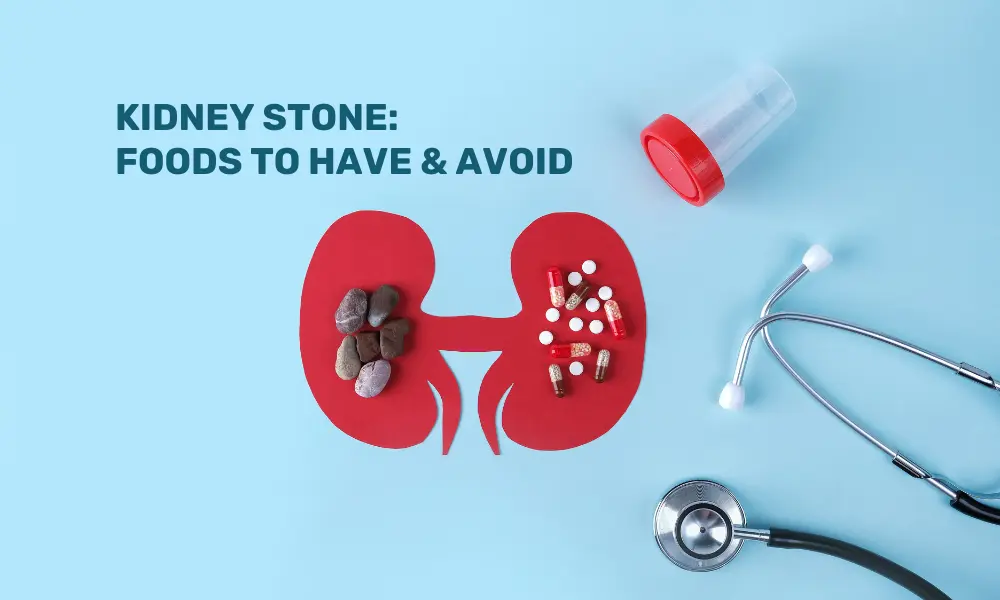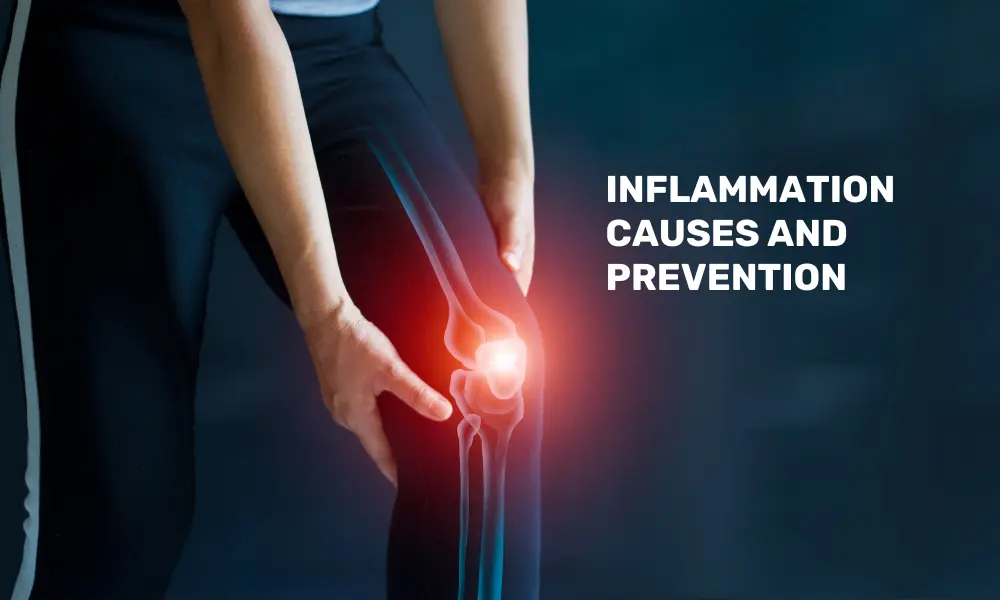Kidney stones are hard mineral and salt deposits that develop inside your kidneys. They range in size and are usually painful to eliminate. Increased risk of kidney stones can be caused by poor diet, dehydration, obesity, medical conditions, and some supplements and medications. Knowing which foods to consume and avoid is important for prevention and management.
Our in-house expert, Dt. Aparna Pandey, MSC-Nutrition and Dietetics, shares everything about kidney stones and foods to avoid and have if one has a tendency to develop kidney stones.
Types of Kidney Stones
There are various types of kidney stones, the main ones are:
-
Calcium oxalate (most common)
-
Uric acid stones
-
Struvite stones
-
Cystine stones (rare, genetic)
How Do Kidney Stones Form?
Kidney stones form when there is an imbalance between substances that promote crystallization (like calcium, oxalate, and uric acid) and those that prevent it (like citrate).
-
When urine is highly concentrated due to dehydration, minerals can stick together and crystallize.
-
Low urine volume and high excretion of stone-forming substances lead to aggregation and gradual stone formation.
-
Calcium oxalate stones develop when calcium combines with oxalate in the urine.
-
Uric acid stones are a result of persistently acidic urine, usually because of excessive consumption of purine-rich foods.
Foods to Avoid
1. Oxalate-Rich Foods (for calcium oxalate stones)
- Spinach
- Beetroot
- Nuts and seeds (particularly almonds, peanuts)
- Chocolate
- Sweet potatoes
Reason to Avoid ?
Oxalate combines with calcium in the urine to produce stones. Lowering oxalate consumption reduces the risk.
2. Excessive Sodium (Salt)
- Pickles
- Processed foods
- Chips and packaged snacks
- Restaurant and fast foods
Reason to avoid ?
Increased sodium consumption raises urine calcium, which facilitates stone development.
3. Animal Protein (particularly red meat)
- Mutton
- Pork
- Organ meat
- Excessive fish
Why?
Enhances production of uric acid and decreases citrate (stone inhibitor) in the urine, resulting in uric acid and calcium stones.
4. Sweetened Beverages (Especially Colas)
- Cola beverages
- Sweetened drinks
- Soft Drinks
- Can Products
Reason to avoid?
Loaded with phosphoric acid, colas elevate urinary calcium and cause stones.
Foods to Consume
-
Citrus Fruits (particularly Lemon, Orange, Sweet Lime)
- Lemon water
- Oranges
- Mosambi (Sweet lime)
- Grapefruits
- Guavava
Reason to Avoid?
Rich in citrate, which combines with calcium and does not allow crystal formation.
2. Proper Fluids (2.5-3 litres/day)
- Water
- Coconut water
- Infused water (lemon, cucumber)
- Chass or Buttermilk
Reason to Avoid?
Dilutes the mineral concentration, flushing out toxins and inhibiting stone formation.
3. Calcium-Rich Foods (But Not Supplements)
Low-fat milk, curd, paneer, poppy seeds, Sardines and Salmon
Reason to Avoid?
Dietary calcium combines with oxalate in the intestine, minimizing its absorption into the body and inhibiting stone formation.
4. Whole Grains and High-Fiber Foods
- Brown rice
- Oats
- Whole wheat roti
- Vegetables such as carrots, cucumber, pumpkin
Reason to avoid?
Fiber decreases absorption of calcium and oxalate in the intestines therefore it must be avoided.
5. Low-Oxalate Vegetables
- Cabbage
- Cauliflower
- Bottle gourd (lauki)
- Pumpkin
Some Additional Tips
-
Moderate Protein Intake: Have plant-based protein sources such as lentils, dal, and tofu.
-
Avoid Excess Vitamin C Supplements: Vitamin C in excess is converted into oxalate.
-
Avoid Excess Tea and Coffee: These can add to oxalate load if taken too much.
-
Avoid Crash Dieting: Rapid rapid weight loss can raise stone risk.
The Bottomline
Dietary adjustment is a significant preventive measure against kidney stones. Proper hydration is the most crucial preventive practice. A well-balanced diet with sufficient calcium, low oxalate, sodium, and animal protein, with higher citrate-containing foods, offers total protection against the formation of kidney stones. For more such nutrition-related tips – CLICK HERE!
Disclaimer: This article is meant for informational purposes only and must not be considered a substitute for professional advice.





